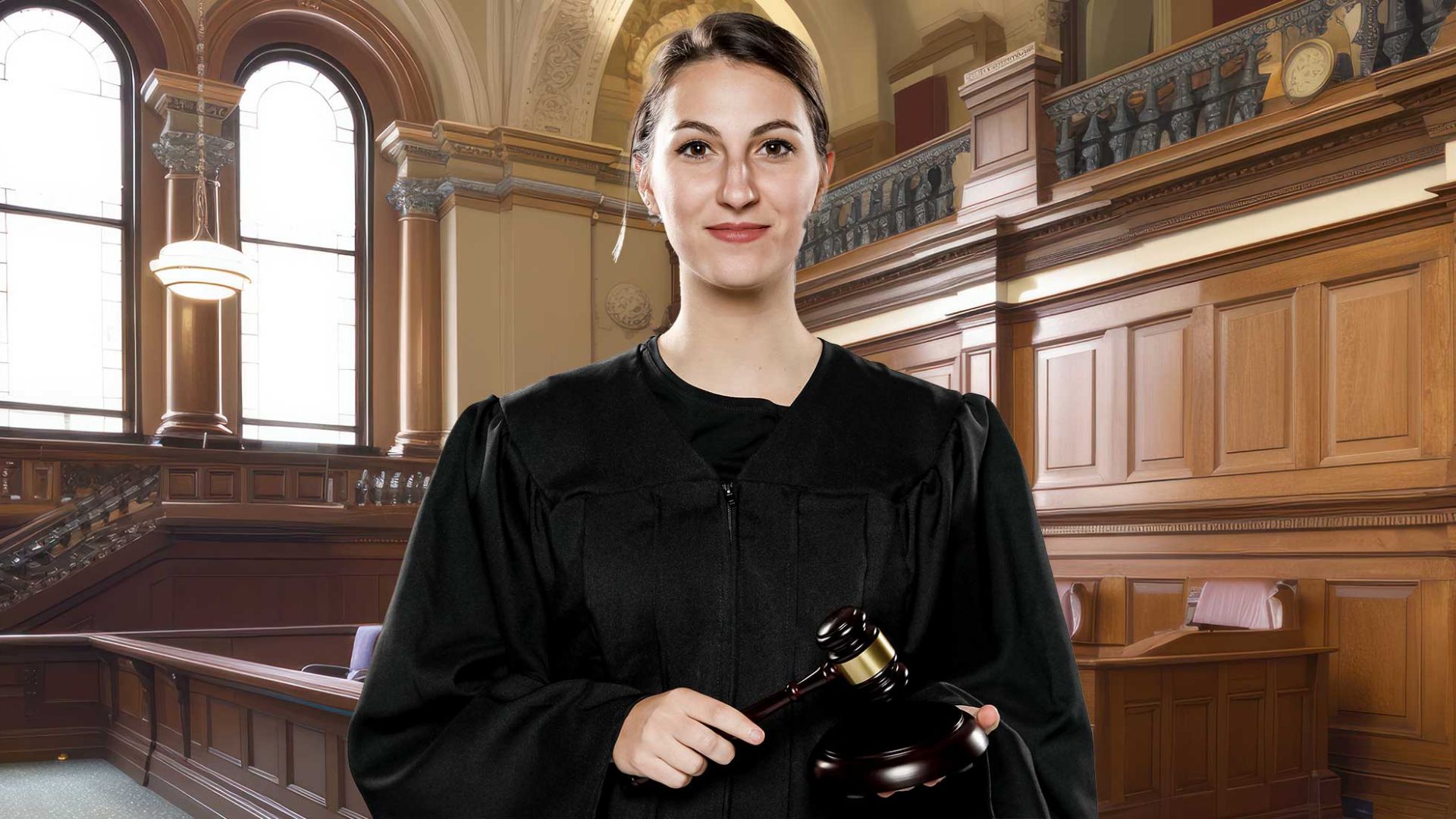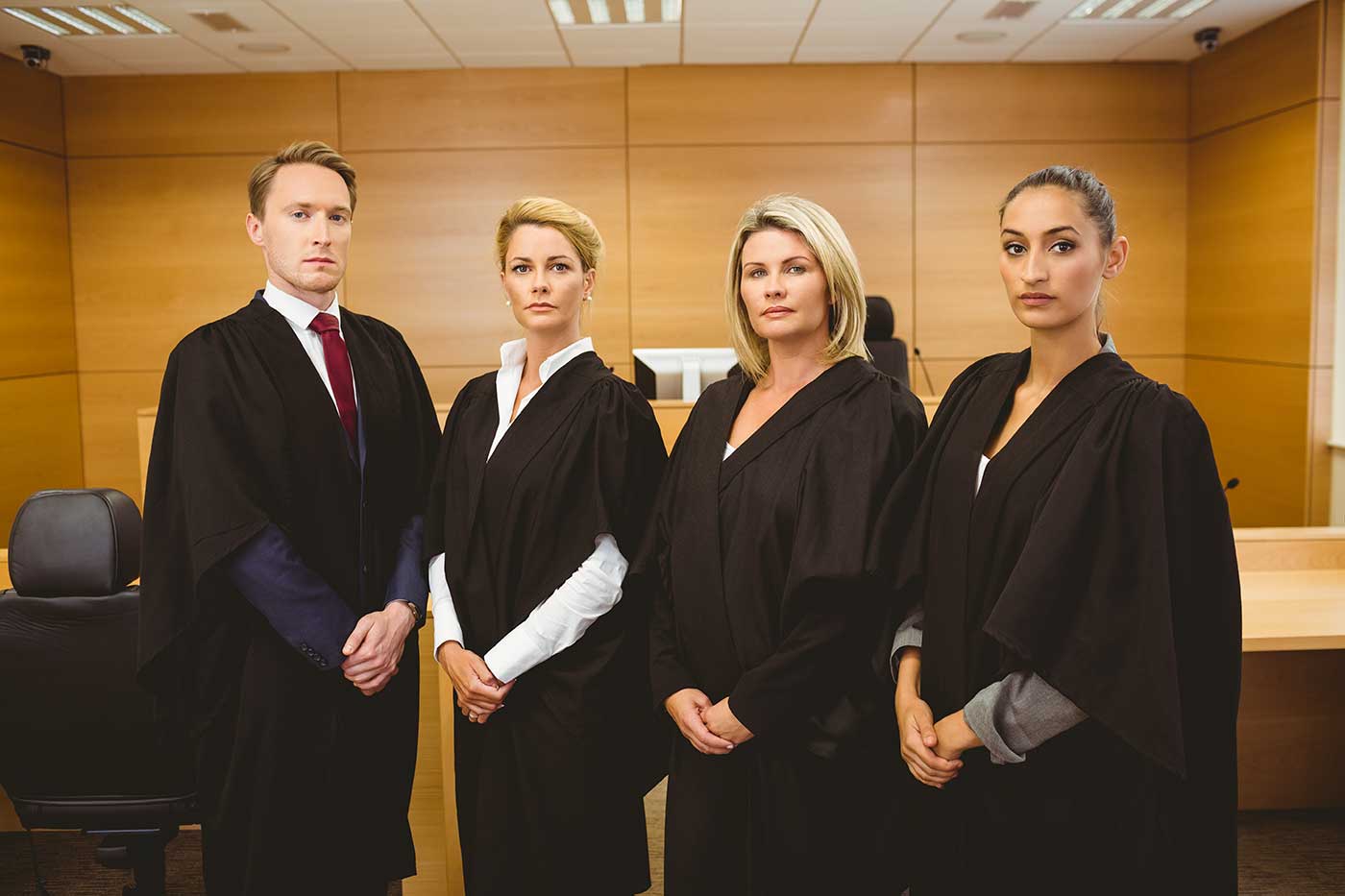What GCSEs Do You Need To Be a Lawyer? Best Subject Combinations & Tips

May 23, 2025 | 10 months | By Career
In This Article:
How many GCSEs do you need to become a lawyer?
To pursue a career as a lawyer in the UK, students typically need to obtain a minimum of five GCSEs at grade 4/C or above, including core subjects like English and Mathematics. While there are no strict legal requirements for the exact number of GCSEs, many universities and law schools prefer applicants with strong academic backgrounds. That’s why, most students often pick between 8 and 10 GCSEs, based on the level of exigence they can take.
Can you become a lawyer with no GCSEs?
Becoming a lawyer without GCSEs is pretty unlikely. Sure, there might be a few exceptions where people gain experience through volunteering and later pick up the necessary qualifications along the way, but the usual route in the UK is more straightforward: you start with GCSEs, move on to A-levels, and then head to university to earn a Law degree.

Core Subjects: The must-haves of your list
Here is the list of the best GCSEs to start your journey into Law.
English Language
The GCSE English course focuses on improving reading, writing, speaking, and listening skills. It helps you communicate clearly and effectively, which is crucial for lawyers when drafting documents or presenting arguments.
Why is it important?
English Language is key to a legal career because it sharpens your communication skills: something every lawyer needs for writing clear legal documents, crafting strong arguments, and presenting cases. Lawyers have to be masters of language to explain complex ideas and negotiate deals effectively.
Recommended levels and grades
You’ll typically need at least a grade 5 (C) in English Language for law, but aiming for a grade 6 or higher will boost your chances for top law programs.
Learn more about how to study for English (I)GCSE in our related blog!
English Literature
By studying novels, poetry, and plays, you’ll develop skills to analyse complex texts, which is super useful when it comes to reading case law and legal precedents.
Why is it important?
English Literature encourages critical thinking and analysis of complex texts, skills that are invaluable in law. Just like lawyers break down statutes and case law, literature teaches you how to interpret and evaluate information. Plus, it helps build empathy, which is a big plus when dealing with clients.
Recommended levels and grades
A strong performance in English Literature, ideally a grade 6 or above, will reflect well on your analytical abilities and enhance your overall GCSE portfolio.
Mathematics
The GCSE Maths strengthens logical reasoning and analytical thinking, both of which are necessary for solving legal problems, especially in fields like corporate or tax law.
Why is it important?
While Maths might not seem directly tied to law, it develops logical thinking and problem-solving skills, both of which are key attributes for a successful lawyer. Understanding numbers and data is also vital for areas like corporate or tax law.
Recommended levels and grades
A grade 5 (C) in Maths is often required, but aiming for a 6 or above can make you stand out, especially at competitive law schools.
Read more about how to revise for GCSE Maths.
A Guaranteed Pass in Your Exams!
CloudLearn are the only UK Online Learning centre to guarantee a pass for our students.
Find out more
Complementary subjects per speciality: our recommendations
Law is a wide and complex profession and different specialisations require specific skills and knowledge. If you already know which path you want to follow, here are some subject combinations to help build a strong foundation for your chosen speciality.
Criminal Lawyer: History + Psychology + Sociology
For aspiring criminal lawyers, GCSE History helps you understand legal precedents and how laws have evolved. Psychology gives insights into criminal behaviour and motivations, helping you approach cases with a psychological lens. Sociology adds another layer by letting you study societal influences and structures, so you can analyse crimes in a broader social context.
Corporate Lawyer: Business Studies + Economics + Computer Science
Business Studies helps you understand corporate structures and contracts, Economics gives you a grasp on financial systems, and Computer Science is essential for navigating tech-related legal cases like cybersecurity.
Family Lawyer: Psychology + Sociology + Health and Social Care
GCSE Psychology is a must for future family lawyers, as it provides insights into the emotional and mental health aspects of family disputes. Sociology pairs well with this, helping you understand family dynamics and societal frameworks that play a role in family law cases. Health and Social Care are also key, introducing you to welfare systems: essential for handling cases involving children, divorce, and social services.

Barrister: History + Philosophy + Drama
Barristers benefit from History, which helps with understanding legal precedents and the development of law. Philosophy sharpens critical thinking, logical reasoning, and ethical decision-making, all crucial for arguing cases. Drama enhances public speaking, advocacy, and courtroom performance, essential skills for anyone aiming to become a barrister.
Human Rights Lawyer: History + Philosophy + Ethics (or Religious Studies)
A Human Rights lawyer must understand the historical context of human rights, making History a key subject. Philosophy encourages critical thinking about justice and morality, while Ethics or Religious Studies foster a deeper understanding of moral principles and ethical dilemmas, which are central to human rights cases.
Medical Lawyer: Biology + Chemistry + Health and Social Care
Biology and Chemistry provide the scientific background needed for medical negligence cases, and Health and Social Care gives you insight into healthcare systems and patient rights.
Attorney: History + Business Studies + Sociology
For those pursuing a general attorney role, History provides a solid foundation in legal precedents. GCSE Business Studies offers practical knowledge of commercial law and contracts, while Sociology helps attorneys understand the societal impact of laws and how they influence different communities.
Property Lawyer: History + Business Studies + Science
Property lawyers require History to understand land law and the legalities of property ownership. Business Studies offers knowledge of real estate markets and transactions, while GCSE Science fosters analytical skills, particularly useful for property development, environmental law, and technical cases related to land and construction.
Here you have more information about how to study for GCSE Science!

What GCSE grades do you need to be a lawyer?
Oxford University
At Oxford University, students are not required to take specific subjects to enter a Law course, but interviewers highly recommend aiming at 7, 8 and 9 grades to stay competitive among applicants and have higher chances of getting an offer.
Cambridge University
Similar to Oxford, Cambridge doesn’t require specific subjects for law, but high grades are a must to stand out.
LSE (London School of Economics)
To get into LSE, you’ll need several GCSE grades at A or A* (7-9), including English Language and Maths at grade B (6) or higher.

Further tips & considerations for your law journey
Consider university entry requirements
Before applying to law courses, research each university's specific entry requirements. Some may expect certain A-Level subjects, while others may place greater emphasis on strong GCSE performance or relevant work experience. It's important to match your academic profile with the requirements of your target universities to boost your chances of getting into top law schools.
Extra ways to reinforce your path
Aside from GCSEs, there are a few other aspects that will help you build a stronger profile to stand out among applicants.
Work experience
Gaining work experience in a legal environment, such as shadowing a solicitor or participating in a legal internship, provides practical exposure and enhances your understanding of the profession. This experience can also strengthen your university applications by demonstrating your commitment to the profession as well as valuable previous experience.
Extracurriculars
Engaging in extracurricular activities like debating, mock trials, or joining a law society can help develop key skills such as public speaking, critical thinking, and teamwork. These activities show law schools that you have a well-rounded profile and are dedicated to building a future legal career.
A Levels
A-levels are the next step to take after GCSEs, as the vast majority of universities ask for these as entry requirements. But what A-levels are best for Law? Subjects like History, English, or Geography will give you a solid foundation for law studies.
Where to study GCSEs? Options for all ages
Traditional schools
Most students finish their GCSEs in a traditional school setting during the final two years of mandatory secondary education. This offers structured learning with access to a variety of subjects and extracurricular activities. Teachers guide students through a curriculum that prepares them for A Levels or further education.
Night schools
For retakers or adults taking GCSEs, night schools offer flexible learning options, allowing individuals to study part-time while balancing work or other commitments.
Homeschooling
Home education for GCSEs is a great choice for students who prefer flexibility. Homeschooling through online academies like CloudLearn allows students to learn at their own pace with the support of experienced tutors.
This approach suits a wide range of learners, from those balancing other commitments to those seeking a customised learning path. Plus, online learning makes it easy for students of any age to access GCSEs without the constraints of traditional schooling environments.
Private education centres
Private centres offer tailored learning experiences, often with smaller class sizes and individualised attention. They are ideal for students seeking more focused teaching or those looking for a specific GCSE subject not offered at traditional schools.
Easy Flexible Payments with CloudLearn
Spread the cost of your course with flexible, affordable payment plans.
Find out more
Feeling overwhelmed? With CloudLearn, GCSE success is guaranteed!
Navigating your GCSEs can feel overwhelming, especially when planning for a future career in law. However, with CloudLearn's flexible online courses, you can tailor your studies to fit your needs. Whether you're balancing other commitments or simply seeking more control over your education, CloudLearn provides accredited courses, expert tutor support, and the freedom to study at your own pace. Start your path toward GCSE success today with CloudLearn and take the first step toward your future in law!

Frequently Asked Questions
What GCSEs do you need for Oxford law?
Oxford does not specify particular GCSE subjects for law applicants, but it is important to achieve high grades, ideally in the range of 7-9 (A-A*). Strong results in core subjects like English Language/Literature, Mathematics, and History will bolster your application, as Oxford values well-rounded academic performance.
Do lawyers need maths?
While maths isn’t directly required for a career in law, it’s still a valuable subject because it sharpens your analytical thinking and problem-solving skills. In areas like corporate or tax law, understanding numbers and data can be really useful. Most law schools expect a strong grade in GCSE Maths, but you won’t usually need advanced levels of it.
Do you need a history GCSE to be a lawyer?
A GCSE in History is not mandatory to become a lawyer, but it is highly recommended. History builds critical thinking and analytical skills, both of which are key for legal studies. Plus, it helps you get used to evaluating sources and understanding how societies evolve—skills that are useful for fields like criminal or human rights law.
Do you need Latin GCSE to be a lawyer?
You don’t need a GCSE in Latin to become a lawyer. While Latin used to be important for legal terminology, most modern law programs don’t expect you to know it. That said, a basic understanding of Latin can still be helpful when interpreting certain legal terms, but it’s no longer a necessity.
What A Levels should I take for law?
The most common A Levels for aspiring law students include subjects like History, English Literature, and Politics. These subjects help develop critical thinking, analytical skills, and a solid understanding of societal issues, all of which are essential for legal studies. While no specific A Levels are required in many universities, excelling in these subjects will definitely prepare you well for a law degree.
Do law firms look at GCSEs?
Yes, law firms do consider GCSE results, especially when hiring trainees or interns. They typically expect strong grades, particularly in core subjects like English and Maths. Competitive firms often look for applicants with multiple A or A* grades (7-9) at GCSE level. Strong academic performance reflects a candidate’s ability to handle the demanding nature of legal work.